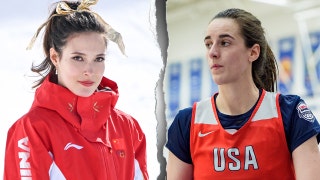By Sonia Oxley
VANCOUVER (Reuters) - Russians wearing blue jackets emblazoned with "Sochi" have been swarming around Vancouver picking up tips on how their Winter Games can be "faster, higher and stronger" in 2014.
They will have noted it will be faster to get between venues in the Black Sea resort, the Alpine skiing will be taking place at higher altitude and their financial situation is much stronger.
But with most venues needing to be built from scratch and security concerns over Sochi's proximity to the volatile Caucasus region, the Russians face big challenges as they seek to live up to the show Vancouver has put on this year.
Where Vancouver used many existing arenas and hotels, Sochi is creating new infrastructure to transform itself from aging Soviet seaside resort to international sporting venue.
Sochi 2014 chief Dmitry Chernyshenko has promised all venues will be built on time by 2012 to allow for test events.
The sub-tropical climate means Sochi should be warmer than Vancouver, already considered hot by winter Games standards, but the melting snow which plagued some events should not be a problem as the Alpine skiing races start 400 meters above those in Whistler at 2,250 meters.
"There is a natural advantage. We are lucky with the geography," Chernyshenko said. "We will do extra activities for snow storage. We also have a system that creates artificial snow."
WALKING DISTANCE
It will be a compact Games, with many of the venues within walking distance of each other in an Olympic park, while the other hub in the Krasnaya Polyana mountains is just 40 km away compared with the 120 km Whistler is from Vancouver.
The coziness should provide a good atmosphere but it remains to be seen if it will match Vancouver's enthusiasm on the streets. Russia remains a harder place to visit as a tourist because of visa requirements and that could put some people off.
Russian athletes' success on home ice and snow would be a good way to ensure local interest but after a disappointing showing in Vancouver -- which has prompted concern even from Prime Minister Vladimir Putin -- there is a lot of work to do.
"It is cause for serious analysis and conclusions," Putin said this week, adding Russia must "fix the situation and create all conditions for a worthy performance" in 2014.
Sochi has been thinking big already with their domestic sponsorship plan exceeding revenues of $1 billion, the biggest ever of a winter Games and equal to the record Beijing summer Games sponsorship intake.
(Editing by Ed Osmond)








































